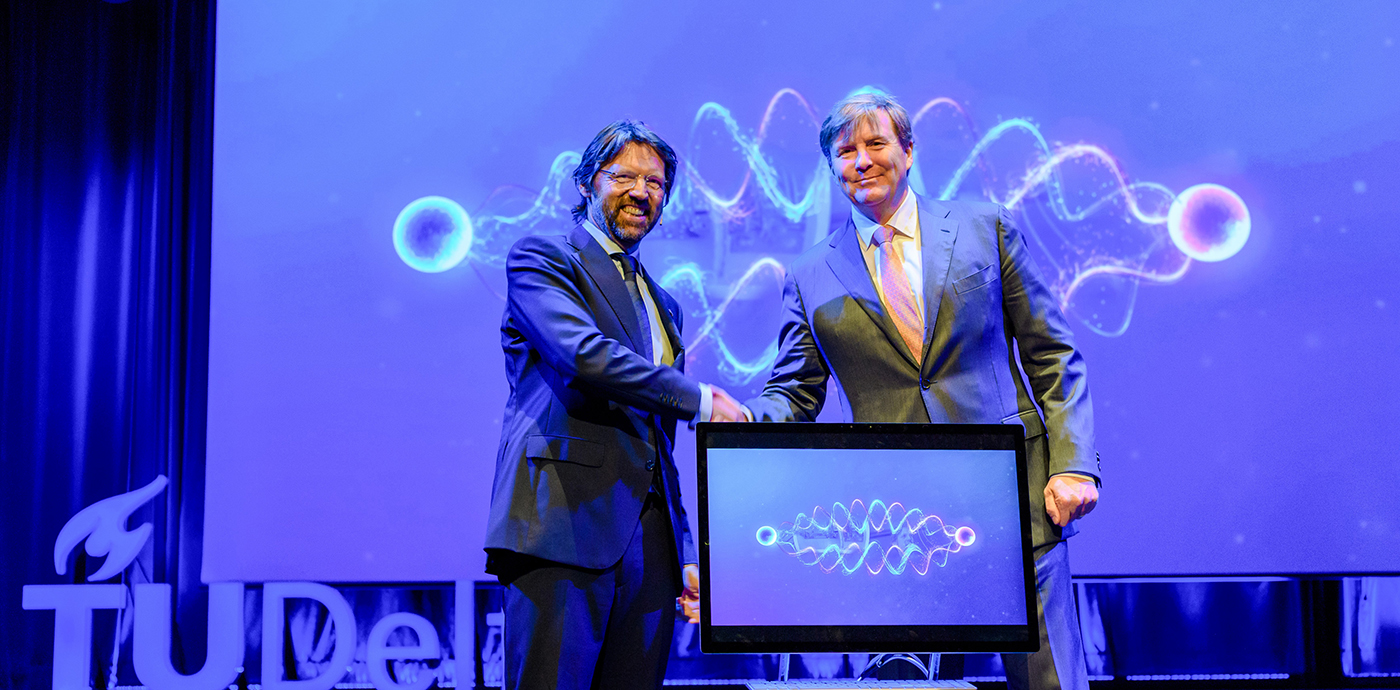QuTech is going to retract a 2018 Nature publication in which researchers had unfoundedly claimed that they had observed majorana particles.
The evidence that QuTech researchers observed majoranas is sketchy. It is a downer for the Microsoft Quantum Lab that was officially opened in 2019 by Leo Kouwenhoven and King Willem-Alexander. (Photo: Marco de Swart)
Most announcements about QuTech start with the platitude that the quantum computer is yet another step closer. However, this time it seems that QuTech and Microsoft, who are jointly working on the lightning speed computers of the future, now need to process a huge blow.
Last week, researchers in Leo Kouwenhoven’s, Professor of Quantum Transport, group published a reanalys on the arXiv website (a website for research in physics) of the measurements taken in 2018 that led to much fanfare. In an article entitled Quantized Majorana conductance, in ‘Nature’ that year, they wrote that they had detected majorana particles.
This was massive news as these obscure particles, that have neither mass nor charge, could be used to make great qubits. Qubits are the calculation units of quantum computers. Unfortunately, the new calculations show that the euphoria was premature.
QuTech is still in the game
You need to go through the arXiv with a toothcomb, but it is there at the bottom of the third page of the manuscript. The researchers mention ‘a full retraction of the publication’.
Under fire for a year
The once highly praised Quantized Majorana conductance article has been under fire for about a year now. Last year, doubts started to surface about the methodology of the data analysis. In May of last year, Nature placed a warning on the article. Its ‘editorial expression of concern’ states that in relation to the incorrect processing of the data, the conclusions in the article may be incorrect. TU Delft’s Research Integrity Committee also started an investigation last year to check if the data analysis was done in line with the relevant guidelines. The investigation is still ongoing.
Delta asked Kouwenhoven about the impact of this downer on the further development of the majorana quantum computer, but has not yet received a response.
Last week, the Volkskrant newspaper ran an article (in Dutch) about the expected retraction of the Nature publication. Kouwenhoven informed the newspaper by email that he would only respond to questions once the arXiv article – that still had to be formally evaluated by peers – had appeared in a proper professional publication.
If the majoranas are written off, QuTech will still be a player in the worldwide race to the quantum computer. The institute is also working on super conducting qubits, qubits in diamonds and qubits in semi-conductors such as silicium.
Do you have a question or comment about this article?
tomas.vandijk@tudelft.nl


Comments are closed.